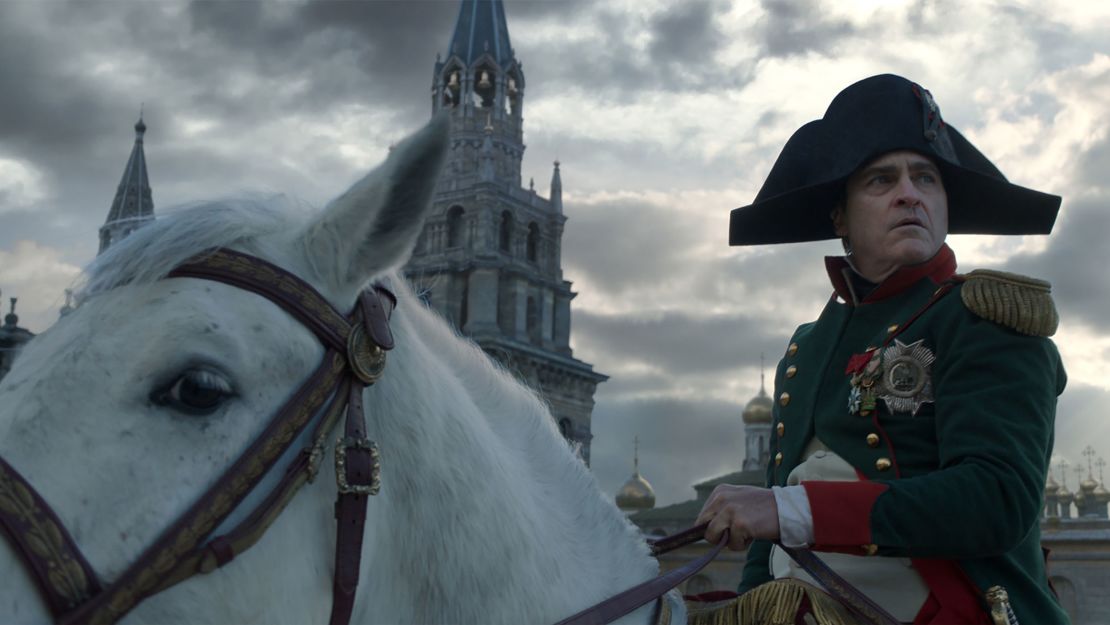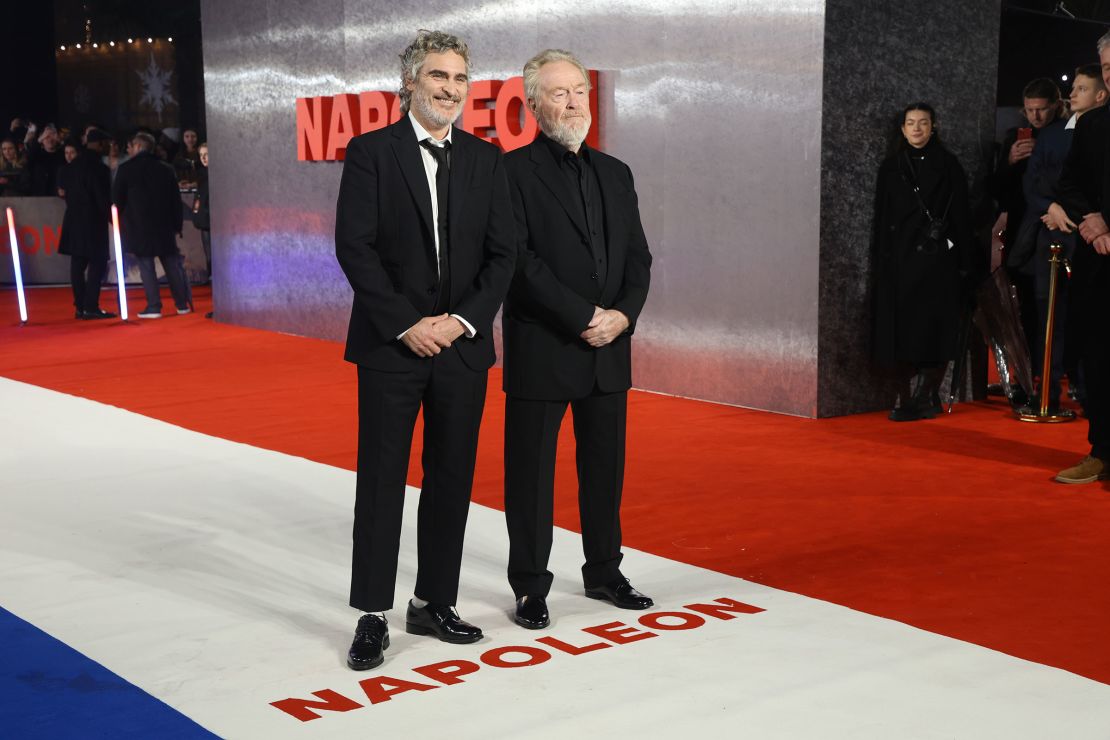Ridley Scott has more to say.
The director has been in garrulous form on the press tour for “Napoleon,” his historical epic starring Joaquin Phoenix as the titular emperor of France. Scott has taken to task historians questioning the accuracy of his film (“Get a life”), had a pop at negative French reviews (“The French don’t even like themselves”) and let us know how prepared he is for an AI doomsday (candles and matches will come in handy).
By the time Scott hit the red carpet in London for “Napoleon’s” UK premiere last Thursday, you’d think there’d be nothing left to say. How about his thoughts on a mooted director’s cut of the film, rumored to run over four hours and appear on AppleTV+ once the film’s theatrical run is done?
“No, no, no, that’s not right. This is the director’s cut,” he insisted. “Part of (a director’s) judgment is how long is too long? Where’s the right length? So you rein it in. I like to use the term ‘bum ache factor’ … We’re running just over two and a half hours. It’s a perfect length for this.”
Director’s cuts have elevated two of Scott’s previous films, “Blade Runner” and “Kingdom of Heaven,” to cult classic status after a muted reception theatrically. Before Scott cinephiles have even seen “Napoleon” on screen, there’s palpable excitement about the prospect.
“Next year, maybe – maybe – there’ll be the fatter version,” Scott teased. Can he preview what we might see? In a word: “No.”
On other subjects he’s chattier, like negotiating the mass of material
written on Napoleon Bonaparte.
“There’s been 10,400 books written about him,” Scott said. “Do you think I read ‘em? You’re kidding.”

“When there’s that many books written about any person in history – more than anyone in history – there’s a hell of a lot of speculation, a lot of conjecture,” he continued.
Scott’s version of “Napoleon” features the bombastic action set pieces you’d expect in one of his films. The story is structured around four battles: the siege of Toulon, the battle of Austerlitz, the perilous Russian campaign of 1812 and Waterloo. Scott notes that the general entered 66 battles during his military career, which meant plenty were weeded out (“You can’t do 66, I’d be here for 10 hours”).
Anyhow, “the battles are easy,” he said of directing them. “The characterizations of such an important man, and what was his real relationship with (wife and empress) Josephine, was quite tricky to handle.”
Napoleon and Josephine’s courtship, marriage and separation adds a psychosexual dimension to the movie; it’s one battlefield on which the leader rarely has the upper hand.
“It’s the strangest story I ever got to know, but I fell in love with (it),” said
Vanessa Kirby, who plays Josephine.
“She had the most extraordinary life. She was a total survivor, she was enigmatic and mercurial,” Kirby added. “She was an outsider, just like Napoleon. I think they recognized something in each other that no one else could understand.”
Phoenix and Scott are reuniting more than two decades after the actor appeared in “Gladiator” as Commodus – another emperor, that time Roman.

“No one can say they’re the best actor in the world … (but) Joaquin (is) one of the top few,” said the director. “So if I can back and get him to do something with me, it’s fuel for me.”
Scott, 85, continues to operate full steam ahead. He has released three features, a short, and directed two TV episodes since the Covid-19 pandemic began, and is halfway through his “Gladiator” sequel starring Paul Mescal.
Where’s the urgency coming from?
“That’s my normal pace. I’m already recceing a film I’m going to do next year after ‘Gladiator.’ That’s the way I work,” he said.
Like the little general in his film, Scott marches on.
“Napoleon” is released in the US nationwide on November 22.





